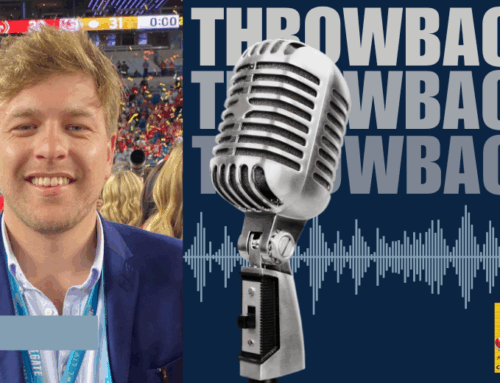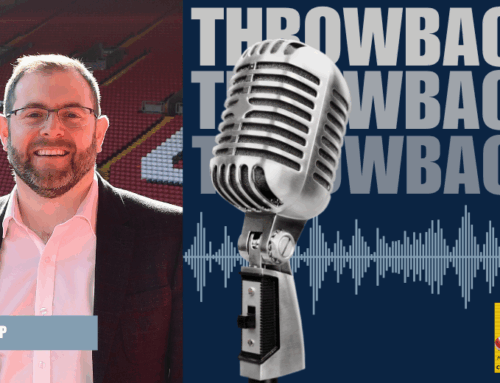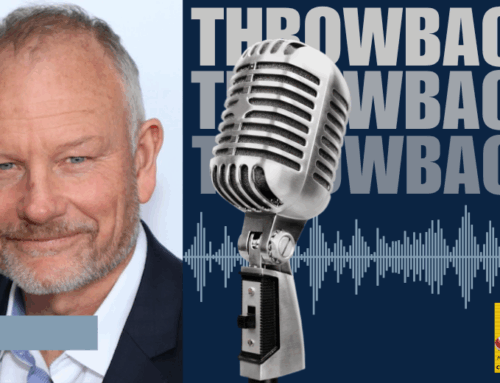In this Sports Geek Throwback episode, Sean Callanan interviews Kim Skildum-Reid, Managing Director of Power Sponsorship from episode 278.
Can't see podcast player? Click here to listen
Key Takeaways
In this Sports Geek Throwback, Kim and Sean discussed importance of sponsorship activations.
-
- Understanding the audience is crucial for effective sponsorship activations.
- Sponsorship is measurable in a multi-faceted and textured way.
- Organizations need to adapt to the increasing sophistication of sponsors.
- The future of sponsorships points to fewer but larger and better-measured sponsorships.
- Sponsorships provide an avenue for brands to connect with their audience authentically.
This transcript has been lightly edited by AI
Sean: I guess moving away, is there a way to better collaborate? Like when I talk to the sponsors and they give the traditional stuff, you know, uh, signage at the stadium or signage on a jersey, those kinds of things. And then they say, but of course you can activate and whether that's included in their proposal to say, we could do these cool digital campaigns and in-stadium pieces.
Kim: I'm not really a huge fan of turnkey sponsorships. I'm not. I think that the sponsor, if they're going to do this, they should just commit because integrating it across everything that they do is really where they're going to get the most value. So going, oh, we can do this digital activation and all that.
That's basically saying we can do these, you know, guaranteed mentions with some cute promotion around it. It's not nearly meaty enough. So they need to actually get the sponsor engaged and intrinsically involved with that. But yeah, I mean, I think that the focus on activations by rights holders has hurt everybody. You know, as you said, they sort of sell what they know.
And so, used to be, you know, 10 years ago or so, activation and leverage meant exactly the same thing, but then people, you know, like a team or whatever would say, and then you get an activation space and an activation space is basically defined as it's a space at a stadium or some venue or whatever, where they can do something with the in-person fans.
You know, I mean, you got people spending ridiculous amounts of money to put 200 people through a virtual reality thing, or, you know, um, how high can you jump into basketball and all that kind of stuff. All that is activation spaces. And then, and so you ended up with this hyper focus on what is a sponsor going to do on site.
And these things tend to be high touch, low reach and expensive. They need a lot of people. They're only going to reach a certain proportion of the people that are bums on seats. And they do tend to be expensive. Whereas if you think about leverage, I always talk about how activation is like a component of leverage.
I'm not saying it's a bad thing. I'm not saying doing stuff on site is a bad thing at all, but you're leaving out all of these remote fans. You're leaving out the customers of the sponsor and their consumers, their potential consumers and their staff all are left out of that.
Whereas leverage does something on site maybe, and also does all this digital stuff and does staff programs. And it launches new products and does market research and all this ton, tons of other stuff. So I think that if coming out of this, that we end up with both sponsors and rights holders talking about activation as being that thing that happens on site as part of a larger leverage program that is multifaceted and comes together in a really interesting, strategic way for each of those sponsors, that'll be a real big win for our industry.
That will be huge.
Sean: And so one of the things that sometimes, uh, from the rights holder side, they struggle with is understanding what to put a value on that space. Um, like they have got, you know, they've got their history of, we know what we're going to value that space, that four by four spot in the stadium.
And that's what they sell it for, but they've had trouble in going, what is the value of our million, you know, a hundred thousand fans or a million digital fans? What does that look like?. How have you seen that push pull on both sides to try to figure out what that value is?
Kim: That whole valuation thing is just a total giant furphy.
Sean: Yeah.
Kim: I mean, I just think it's ridiculous. There's an industry that's grown up around it that says it's legitimate, but it's not. Because what you're actually doing is a rights holder. If you're selling a sponsorship is you're selling something that is bespoke and it's purpose-built for that sponsor. And it's going to have, even those same complements of benefits are going to have different values for different sponsors.
Like for instance, let's say that you're a world-beating, giant basketball team in America. Right. So you can sell the same benefits to the one location, big, the best sports sporting goods store in town, one location, family-owned, one location.
Right. And you can give them a set of benefits that is going to give them amazing digital. They're going to do so much with it. You know, I mean, it's going to be just amazing. Right. But then if you turned around and sold that same thing to Dick's Sporting Goods or somebody else that has a big regional or national footprint, it is potentially leverageable across a much larger footprint of people.
So the same benefits are worth completely different amounts of money. So trying to put a value on a specific benefit, like, you know, here's our three by three meters space that you can have a four by four or whatever it is unless you would normally sell that a la carte, like tickets, tickets have a value, the value is on the front and, or, or a hospitality suite, for instance, where you don't have to be a sponsor to have a hospitality suite.
Aside from those things, as a component of a larger sponsorship, a sponsorship is always going to be worth more than the sum of the parts if it's actually put together well and in a strategic way. So going, how much is that thing worth? You know, how much is the whole sponsorship worth?
Don't try to break those things out. It's making a rod for your own back.
Sean: Yeah. And I do think
Kim: frankly, don't care that much. It just wants something that
Sean: works. But it is a real pain point or a worry point. They're like, Oh, we need to know what, you know, and I've done it, you know, Oh, we need to know what that Facebook post is worth and that Twitter post is worth.
And it's like, I understand that. I understand it. And I, and I can tell you like, Oh, that post is worth a thousand dollars and you do a, you know, 10, a hundred of them. It made us with a hundred thousand dollars. Would you pay a hundred thousand dollars? They go, no. So it's like, why did we do the exercise?
We do something completely different than that. Yeah.
Sean: So, I mean, but really you're, uh, focusing on what the sponsor wants and what's going to work for them.









